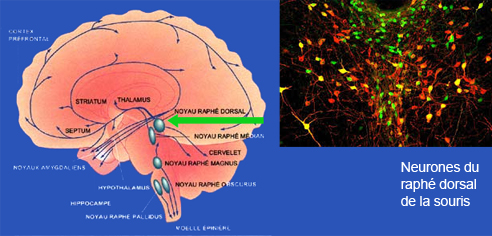Wednesday, 7 August 2019
Study on Brain’s Reaction to Social Isolation Argues Against Its Use in Prisons

Why do people who have been intentionally isolated from their peers (for example, prison inmates who have been placed in “disciplinary isolation”) find this experience so completely dehumanizing? We all know that human beings have great needs for social contact. But are these needs so great that simply being deprived of such contact upsets our entire mental equilibrium? If a study published in the February 2016 issue of the journal Cell is to be believed, it would appear that social isolation does in fact lead to genuine impairments in brain function.
Entitled “Dorsal Raphe Dopamine Neurons Represent the Experience of Social Isolation”, this study dealt with a group of neurons in the dorsal raphe nucleus of the brainstem that use dopamine as a neurotransmitter. While doing her doctoral research on the effects of various drugs on these dopamine neurons in mice, the author, Gillian Matthews, unexpectedly observed a strange phenomenon: after a mouse had been isolated from its peers for 24 hours, the connections among its dorsal raphe neurons became stronger.

[Caption: dorsal raphe neurons in mice]
Subsequent research has shown that these dorsal raphe neurons became sensitized during the period of isolation, so that they became highly active as soon as the mice were placed back in contact with one another. And in fact, researchers then also observed high levels of social activity in the mice, correlated with this increased activity in their dorsal raphe dopamine neurons. Using complex but powerful tools of optogenetics, researchers also showed that if they suppressed the activity of these neurons, the increase in social activity following isolation did not occur.
Well, you might argue that these are only mice and that the observed phenomenon does not directly express the distress that they experience subjectively as a result of the period of isolation. But to paraphrase Alcino Silva, who also does research in this field but was not part of this study, it is still fascinating to see that complex emotions experienced by humans, such as loneliness, also seem to be shared in recognizable form by other mammalian species. In any case, that is what the physiological and behavioural changes observed in the mice would strongly seem to suggest.
If 24 hours of isolation can cause such extensive changes in the brains of mice, it is hard to imagine that two weeks of isolation would leave no traces in the brains of such a social species as human beings, who also, by the way, have a dorsal raphe nucleus in their brainstem.
Further research will be needed to determine the exact connections between the dorsal raphe nucleus, social deprivation and the psychological distress that it causes. (For example, does this nucleus detect the isolation, or activate a compensatory behavioural response to it, or play some other role in some broader network in the brain?) But one thing is certain: this study has provided initial evidence about the brain mechanisms that come into play to keep us from being alone, or at least to compensate for long periods of solitude. And one can easily imagine how highly adaptive these mechanisms would have been for our hunter-gatherer ancestors, considering their hard living conditions and the importance that mutual assistance and cooperation have played throughout human evolution.
Mental Disorders | Comments Closed








